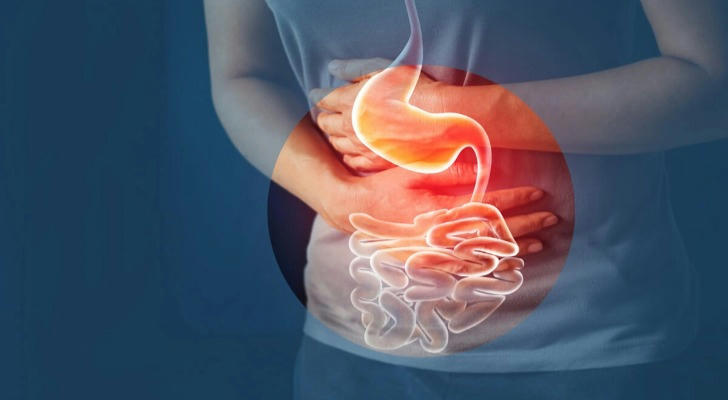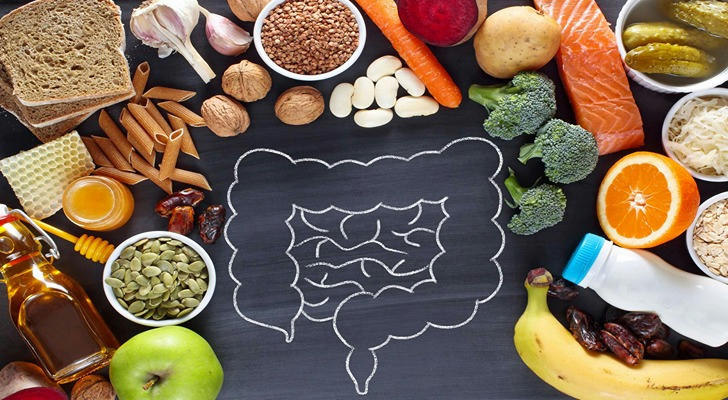How much impact does eating habits have on the digestive system?
In modern society, eating habits not only affect our physical health, but also profoundly affect the functioning of the digestive system. As one of the most complex systems in the human body, the digestive system is responsible for converting food into nutrients needed by the body and effectively eliminating waste. Our daily dietary choices, including the types of food, eating patterns, and eating speed, have a direct impact on this system. A fast-paced lifestyle, an unbalanced diet, and frequent overeating can put a burden on the digestive system, leading to a range of health problems, from mild indigestion to severe gastrointestinal diseases. Understanding how eating habits affect the digestive system can not only help us optimize our diet, but also promote overall health and improve the quality of life.

Mr. Thompson loves salty food, and every meal is inseparable from pickles, pickled meat and high-salt seasonings. He never thought that excessive salt would cause problems until he felt abdominal discomfort and poor digestion and went to the hospital for a check-up. The doctor diagnosed him with chronic gastritis and told him that a high-salt diet would damage the gastric mucosa and increase the risk of stomach discomfort. After treatment and dietary adjustments, his health has recovered. After experiencing this challenge, Mr. Thompson realized the importance of controlling salt. Now he not only changed his high-salt diet, but also actively promoted the benefits of a low-salt diet and encouraged everyone to maintain a healthy lifestyle.
What are the effects of an unhealthy diet on our digestive system?

1.Fat intake
High-fat foods delay gastric emptying, may cause stomach discomfort and indigestion, and increase the risk of gastroesophageal reflux disease. It is recommended to reduce the intake of fried foods, fatty meats and high-fat dairy products.
2.Spicy and irritating foods
Spicy foods may irritate the gastric mucosa, cause gastritis or gastric ulcers, and aggravate the symptoms of gastroesophageal reflux disease. Excessive consumption of spicy foods such as chili peppers and curry should be avoided.
3.Processed foods and high-sugar foods
These foods may disrupt the balance of intestinal flora, cause digestive problems such as irritable bowel syndrome, and increase weight, which will bring more health problems. Minimize the intake of sweets, soft drinks and fast food.
4.Foods containing lactose
For people with lactose intolerance, dairy products may cause digestive discomfort such as diarrhea and bloating. You can choose low-lactose or lactose-free substitutes.
5.Alcoholic and caffeinated drinks
Alcohol stimulates gastric acid secretion and increases the risk of gastritis and gastric ulcers. Caffeine may stimulate gastric acid secretion, affect the symptoms of gastroesophageal reflux disease, and may also cause dehydration. It is a wise choice to limit the intake of alcohol, coffee, tea and energy drinks.
6.High-salt foods
Excessive salt can irritate the gastric mucosa, increase the risk of gastritis or gastric ulcers, and may cause high blood pressure. Reducing the intake of salty snacks, processed meats and canned foods can help protect the health of the digestive system.
What are the benefits of a healthy diet to our digestive system?

1.Balanced diet
A balanced diet means eating a variety of foods every day to ensure that the body gets the various nutrients it needs. Fruits and vegetables provide vitamins, minerals and antioxidants; whole grains provide fiber and B vitamins; protein sources (such as fish, chicken, beans) help repair body tissues and immune system function; healthy fats (such as nuts, olive oil) are essential for heart health. Avoiding long-term dependence on a certain type of food can help the body fully absorb essential nutrients and maintain overall health.
2.Fiber intake
Fiber is divided into soluble and insoluble types. Soluble fiber (such as oats and apples) helps regulate blood sugar and lower cholesterol; insoluble fiber (such as whole grains and beans) promotes intestinal peristalsis and prevents constipation. Fiber can also support healthy intestinal flora and help prevent intestinal diseases, including colon cancer. The recommended daily intake of fiber is 25-30 grams, which can be achieved by increasing the intake of fruits, vegetables and whole grains.
3.Water intake
Water is key in the digestive and metabolic processes. It helps break down food, absorb nutrients and maintain the normal functioning of the intestines. Adequate water can also prevent constipation and help detoxification. It is recommended to drink about 8 glasses of water (about 2 liters) a day, but it can be adjusted according to personal needs and activity level. You can also replenish water by drinking sugar-free beverages or eating foods with high water content.
4.Eat healthy fats in moderation
Healthy fats (such as olive oil, nuts, and fish oil) contribute to heart health and reduce inflammation, while too much saturated fat (such as red meat, dairy products) and trans fats (such as partially hydrogenated oils) may increase the risk of cardiovascular disease. It is recommended to consume fish rich in Omega-3 fatty acids twice a week and replace some animal fats with nuts and seeds.
5.Dietary regularity and eating speed
Regular eating (such as three meals a day, with appropriate snacks) helps maintain blood sugar stability and the normal functioning of the digestive system. Eating slowly can promote full chewing, help digestion and prevent overeating. Avoid eating too fast and overeating, which can reduce the burden on the stomach and the risk of indigestion. By chewing slowly and enjoying every bite of food, you can also increase the satisfaction of eating.

In general, a healthy diet that includes adequate fiber intake, adequate water intake, avoidance of high-fat, spicy, processed and salty foods, and eating at regular and fast intervals can effectively support the normal functioning of the digestive system and promote overall health.
